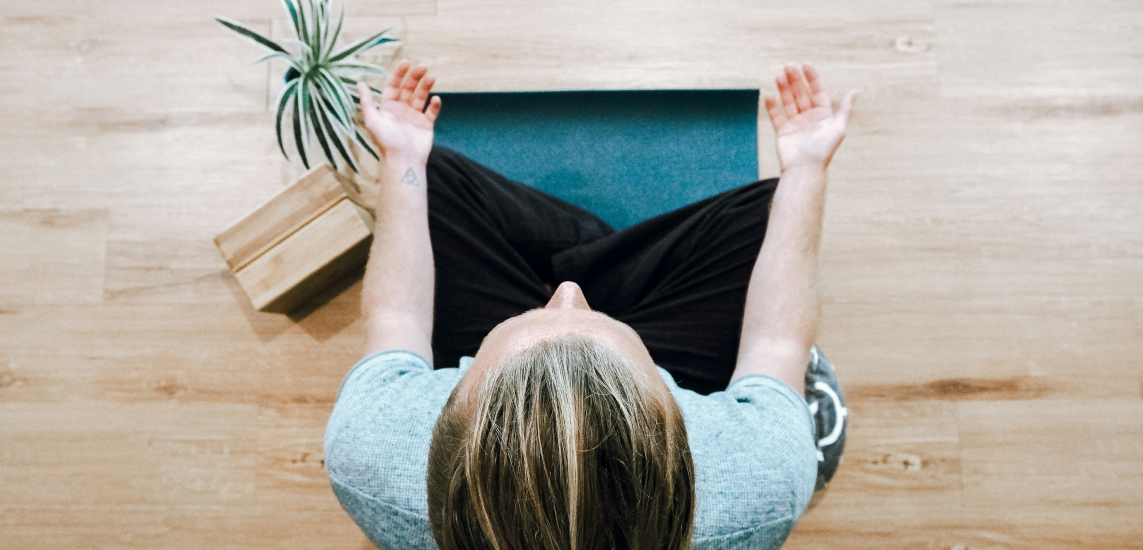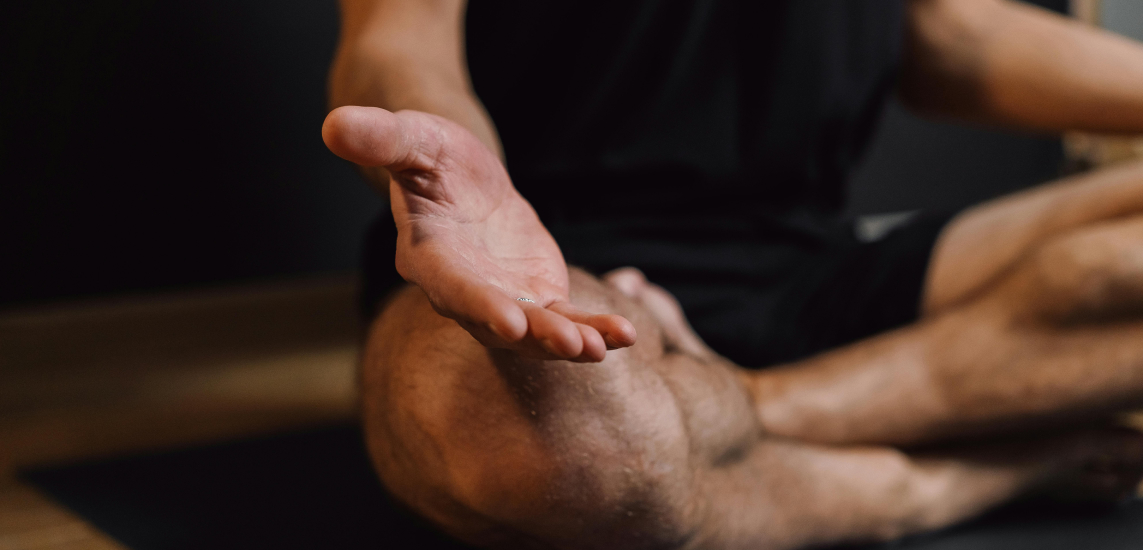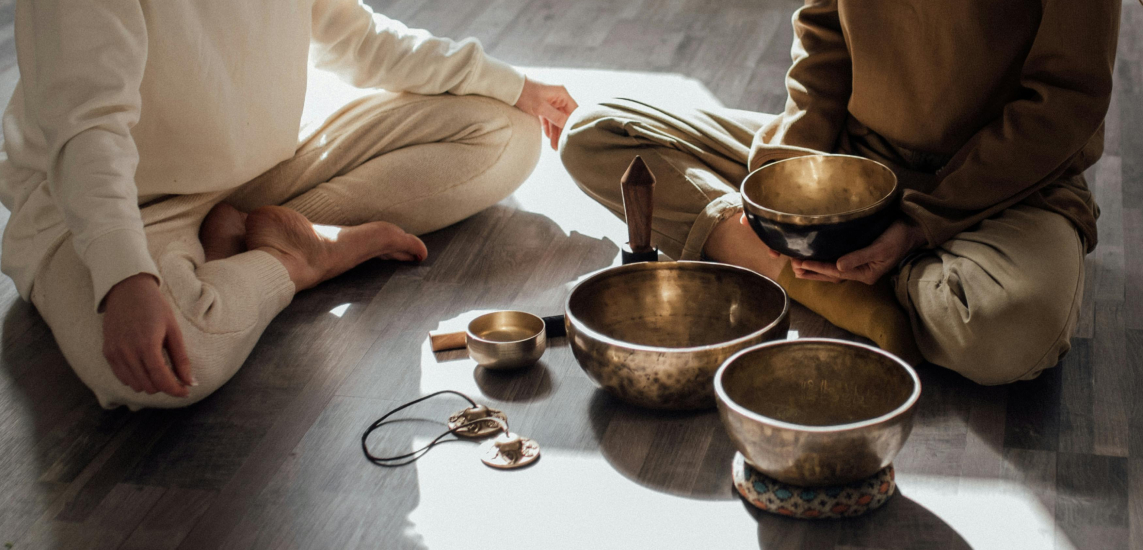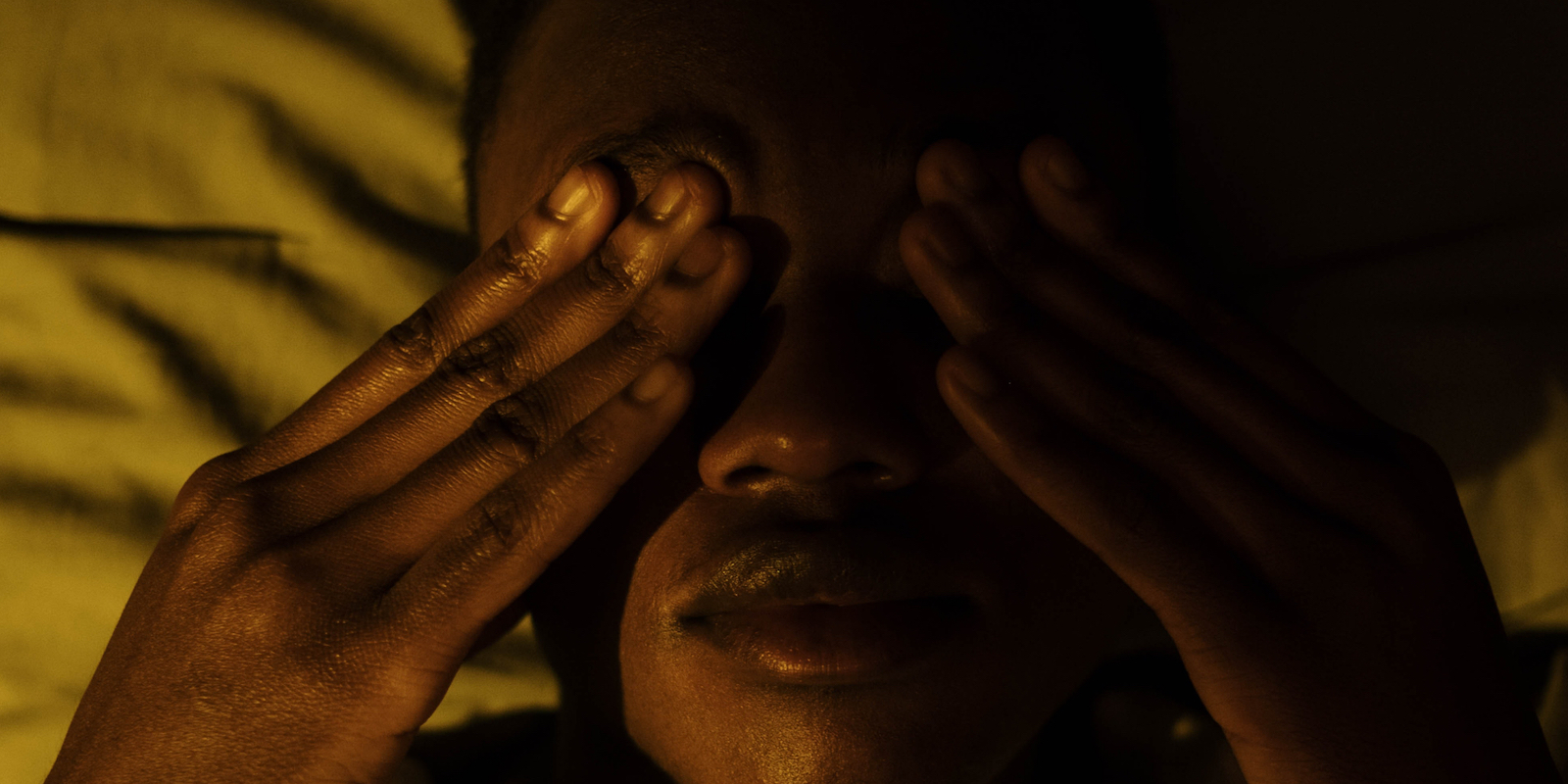The symptoms of anxiety can include excessive fear and worrying, panic attacks, feeling tense and restlessness, and can get worse in the evening. Those who experience anxiety at night are more likely to have issues with sleep.
Sleep is one of the most important things your body needs. Sleep deprivation can not only leave you feeling physically tired and struggling to concentrate, it can also lead to feelings of worry and anxiety, which in turn, make it harder to fall and stay asleep.
This inextricable link between insomnia and anxiety shows us that if you’re missing important hours of shut eye, it’s common for anxiety levels to be higher. And if you’re already feeling anxious about not being able to sleep, chances are you are going to struggle to actually fall asleep in the first place. This cyclical nature of sleep and anxiety, according to the Anxiety and Depression Association of America (ADAA), affects over 50 per cent of adults.
Why does anxiety get worse at night?
There are a number of reasons why you might find your anxiety worsens at night. One might be that with less stimulation or distraction for your mind, the opportunity for worry can increase. During the day, you might find that everyday tasks occupy your mind and keep anxiety at bay, but once the evening comes and things start to wind down, there are less places for your attention to go.
If you have been struggling with getting to sleep at night, you might find that your anxiety increases the closer it comes to bedtime as you begin to worry about not being able to fall asleep. Other factors such as stressors throughout the day or health concerns can also lead to increased feelings of anxiety at night.
For some people, anxiety kicks in after waking up. Learn how to manage morning anxiety.
What can you do to reduce anxiety in the evenings?
If your anxiety intensifies in the evening, rest assured, there are a number of things you can do to help ease the symptoms and set yourself up for a good night of sleep.
It’s a common misconception that our brain should be ‘switched off’ while we sleep. This isn’t the case and it is possible for any worries or anxieties that we’ve had throughout the day to manifest in our unconscious brains, causing a nocturnal panic attack.
An evening routine can support you to have an anxiety-free night ahead. Creating space to unwind and transition from day to night helps to prepare your body and mind for sleep. Low lighting, less screen time can increase relaxation and work to reduce any anxiety-inducing triggers that can occur and prevent you from sleeping.
Simple bedtime rituals that can significantly reduce anxiety
Gentle breathing exercises
Meditating right before you tuck in for the night can be a great way to turn down the nighttime anxiety. Evidence suggests that even one session of meditation can be beneficial in reducing your anxiety. Even more benefits may be seen long term. Guided meditations that take you through a calming breath practice can be a great way to reduce anxiety and stress. Breathing deeply can slow your heart rate and improve your blood pressure.
Guided visaulizations
Guided visualizations are a proven relaxation technique that involve visualizing positive, peaceful settings like a beautiful beach or a peaceful meadow. This could be in the form of a guided meditation or by simply imagining a place that makes you feel calm and grounded. The goal is to promote a calm state through relaxation and mindfulness and the idea is that your body reacts to your own thoughts. Your mind might feel calmer and more at ease and in turn, your body can relax and allow you to drift into a restful sleep.
Learn more how visualizations can help reduce anxiety.
Bedtime stories
As an adult, it might seem strange to turn to bedtime stories as a tool for better sleep. But for some adults, they help to support a relaxing and anxiety-reduced sleep routine. Too frequently, we get stuck in a spiral of thinking about stressful events, about conversations we’ve had or will have, or other stressors that make falling asleep difficult.
The idea is that if you are able to relax by focusing on listening to a calm and positiver story, your brain can actually start to slow down. A bedtime story gives listeners something to hold their attention in a peaceful way, comforting and soothing to lull you to a restful night’s sleep.
Gentle stretching
Exercise can help improve both sleep quality and duration. If you experience nighttime anxiety, try sticking to your high intensity exercise routine in the morning rather than the evening. Strenuous exercise raises your body temperature and heart rate, so working out before bed can disrupt the falling asleep process. Instead, try some gentle stretching and deep breathing exercises an hour before bed to help your body wind down.
Write a list
Clear the clutter from your mind by writing a list. If one of your anxiety triggers involves worrying about your daily activities, you may notice your anxiety spikes more at night. Creating a to-do list for the day or week may help take away some of that anxiety.
Turn off electronics
Electronics emit energy which can keep you awake when you really need to be switching off. The artificial blue light from electronics is thought to suppress the sleep hormone melatonin, making it harder to fall (and stay) asleep. Try switching them off or removing them from your bedroom to allow your body and mind to truly rest.
When to see a doctor
If you find that your feelings of anxiety are regularly preventing you from sleeping at night or affecting your day-to-day life, it’s important to reach out to a doctor or mental health specialist for help. There are a range of treatments and support available, reaching out to the right person is the first step to finding the right treatment for you.


-1.jpg)




